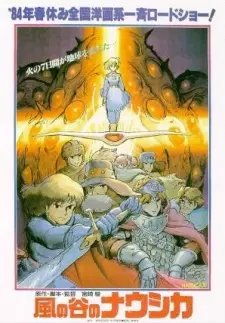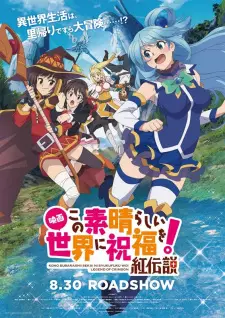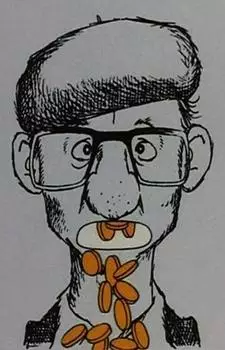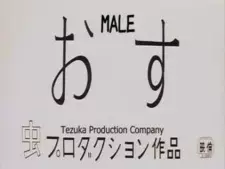Feb 14, 2021
Excuse me, I'm Spanish and I don't usually write in English. If you want you can read my review in Spanish.
Push is a 4 minute short film about the disaster of war, told in a humorous way. The theme of the work isn't new. In almost all Tezuka's short films -even outside of them- this issue can be located. Just like his interest in narrating it in a satirical way. And also like Osu (1962), he reserves the surprise for the end, without forgetting the irony that characterizes him so much.
The film opens with what appears to be a lifeless wasteland, with an army vehicle
...
driven by the protagonist, who has all the earmarks of being a soldier or mercenary, soon occupying the screen. Both he and his uniform and vehicle are damaged, so it is likely that he was not long ago on the battlefield and did not emerge unscathed. This world gives the feeling that it was the scene of that battle and the result was this desert. Next, we look at how it stands at various points. In each one there is a machine capable of meeting different needs: drinks, clothing, vehicle, pets, etc. All this at the touch of a button and choose the option that best suits what you want.
Later, we come to what appears to be God's dwelling place. This confirms that the previously seen would be another world, where it seems that it is possible to create anything in an instant. Here there are those who see a criticism of the excessive promptness and comfort of the advances of the modern world. It is true. If we make a comparison with our reality, we can see that every time human progress is capable of making our lives easier. The Internet may not yet exist in Tezuka's time, but the truth is that it would be the paradigm of what I speak. With the Internet, one is able to have a multitude of options with just a couple of clicks. Putting it in connection with what is seen in this work, the human being has the feeling that there is nothing that cannot be achieved or fixed.
But the surprise comes when our protagonist, now presentable, decides to appear before God and ask him to create a new Earth. If there are all those machines, you could do it, right? Well, what do you think he answered? That it was impossible. There is no other new Earth. Ironically, they make use of the word pulsar for the first time. According to God, the human being pushed the wrong button. And if we look closely once God disappears, the desperate man looks at the horizon. Here the camera changes the frame to a wider one and moves so that we can see what there is: an immense wasteland fruit of having used deadly weapons of war. Presumably, I think it is clear that he refers to the nuclear bomb. Hence the "wrong button."
Undoubtedly, this also makes a powerful impression on the viewer, who despite the irony used by Tezuka reflects on this fact. We live with the idea that everything can be fixed, but if we took on the world there would be no possible solution. As far as we go, there is only one Earth. Despite the moral blow, Tezuka is not satisfied and ends with a "Thank you very much", ironically that we got what we asked for.
You can read my review here: https://elarmarioanimados.blogspot.com/2020/06/cortometrajes-de-osamu-tezuka-anos-80.html
Reviewer’s Rating: 7
What did you think of this review?
Nice
 4
4
Love it
 0
0
Funny
 1
1
Confusing
 0
0
Well-written
 0
0
Creative
 0
0Show all

 5
5



.png)
























